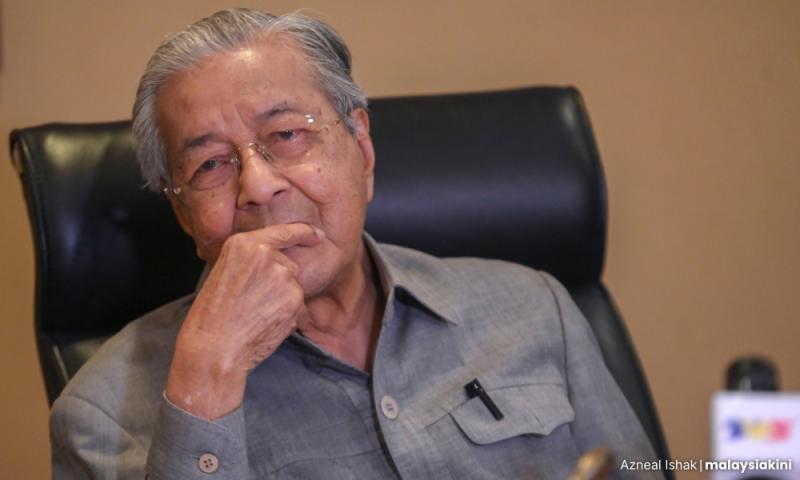LETTER | Difference between race, nationality that Dr M doesn't understand
LETTER | Both race and nationality are a form of identity. Race is a people-based identity, it is tied to your ancestry. It is passed down from parents to children and connects you to not only your parents but the parents of your parents.
The Malay term for race, for example, is bangsa or wangsa, which is derived from the Sanskrit term Vamsa, and literally means lineage or family.
When you share the same race with someone, what you have in common is the same ancestors. Race is what connects every generation with the past and future generations.
One of the main reasons that people have children is to pass a part of them to their children. When we identify with our race, we are essentially honouring and acknowledging our ancestors.
We honour and acknowledge our ancestors, by embracing the value systems, beliefs, culture, customs and traditions that our ancestors had embraced.
Meanwhile, nationality is a land-based identity, it is tied to our home. When we share the same nationality with someone, what we have in common is the nation that we call home.
When we identify with our nationality, we are essentially honouring and acknowledging our home. We honor and acknowledge our home, by upholding and protecting its sanctity and sovereignty.
The people who share the same nationality will determine the affairs of their homeland by themselves. They will not let those who have a different nationality dictate terms in their homeland.
Race and nationality are not conflicting identities. Just because you honour different ancestors, it doesn’t mean that you will be disloyal to your home.
To uphold the sovereignty of your home you do not need to have the same ancestors. A home is the place where you can feel most like yourself.
It is not uncommon for a person to feel at home in a place that is different from the place that one’s ancestors inhabited. It is not unheard of for people to defend the sovereignty of their home, even if they come from different ancestry.
For former prime minister Dr Mahathir Mohamad to conflate and confuse one’s race with one’s nationality by saying that just because one has a different ancestor, one cannot be loyal to one’s home, speaks more about Mahathir than it does about anyone else.
He is likely telling himself that he had to sever his ties with his ancestors in order to be loyal to his nation, but the truth is, he did not have to do it.
He could have easily honoured his ancestors while remaining loyal to his homeland.
That he chooses to believe that he had to sever ties with his ancestors in order to be loyal to his nation, is something that he has to reflect on in his old age.
Was it really for the sake of being loyal to his nation that he chose to sever ties with his ancestors, or was it for the sake of fulfilling his ambition and desire?
As long as he believes that his decision to turn his back on his ancestors was due to his desire to be loyal to his homeland, and not because he wanted to fulfil his ambition to become the paramount leader of Malaysia, he will forever insist that all of us have to turn our back on our ancestors, to be loyal to our homeland, even though we do not have the same ambition as him.
We lie loudest when we lie to ourselves.
The views expressed here are those of the author/contributor and do not necessarily represent the views of Malaysiakini.
RM12.50 / month
- Unlimited access to award-winning journalism
- Comment and share your opinions on all our articles
- Gift interesting stories to your friends
- Tax deductable
